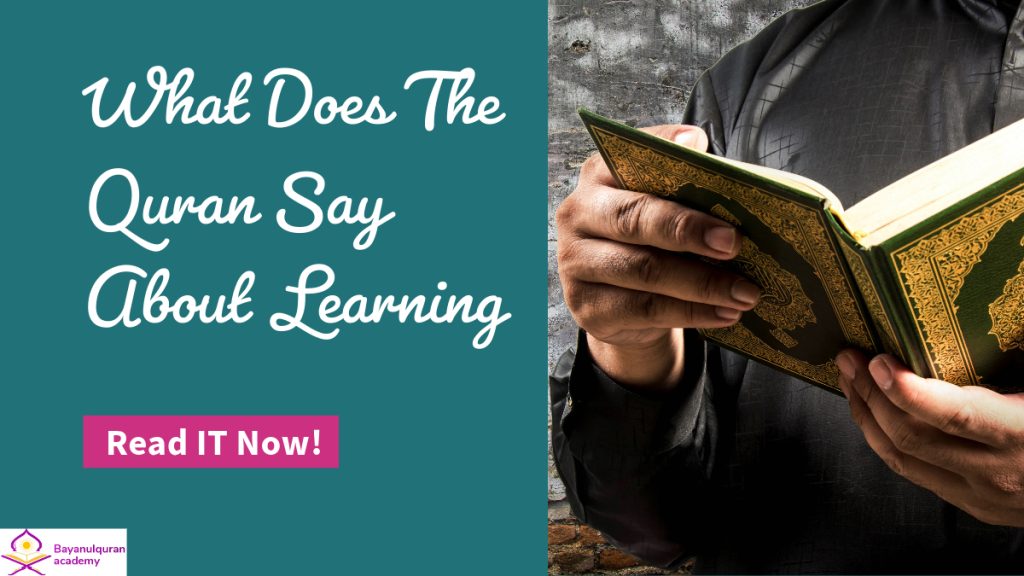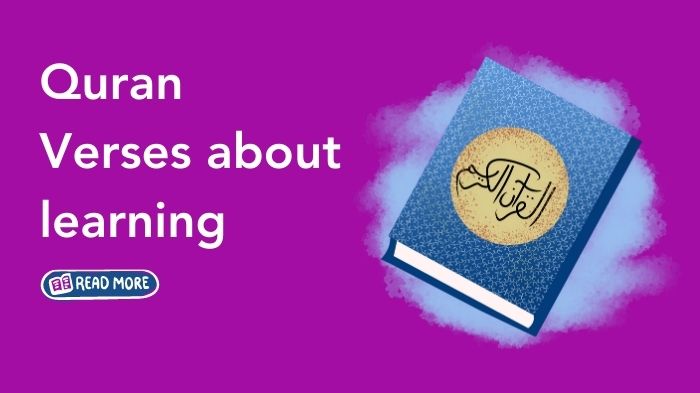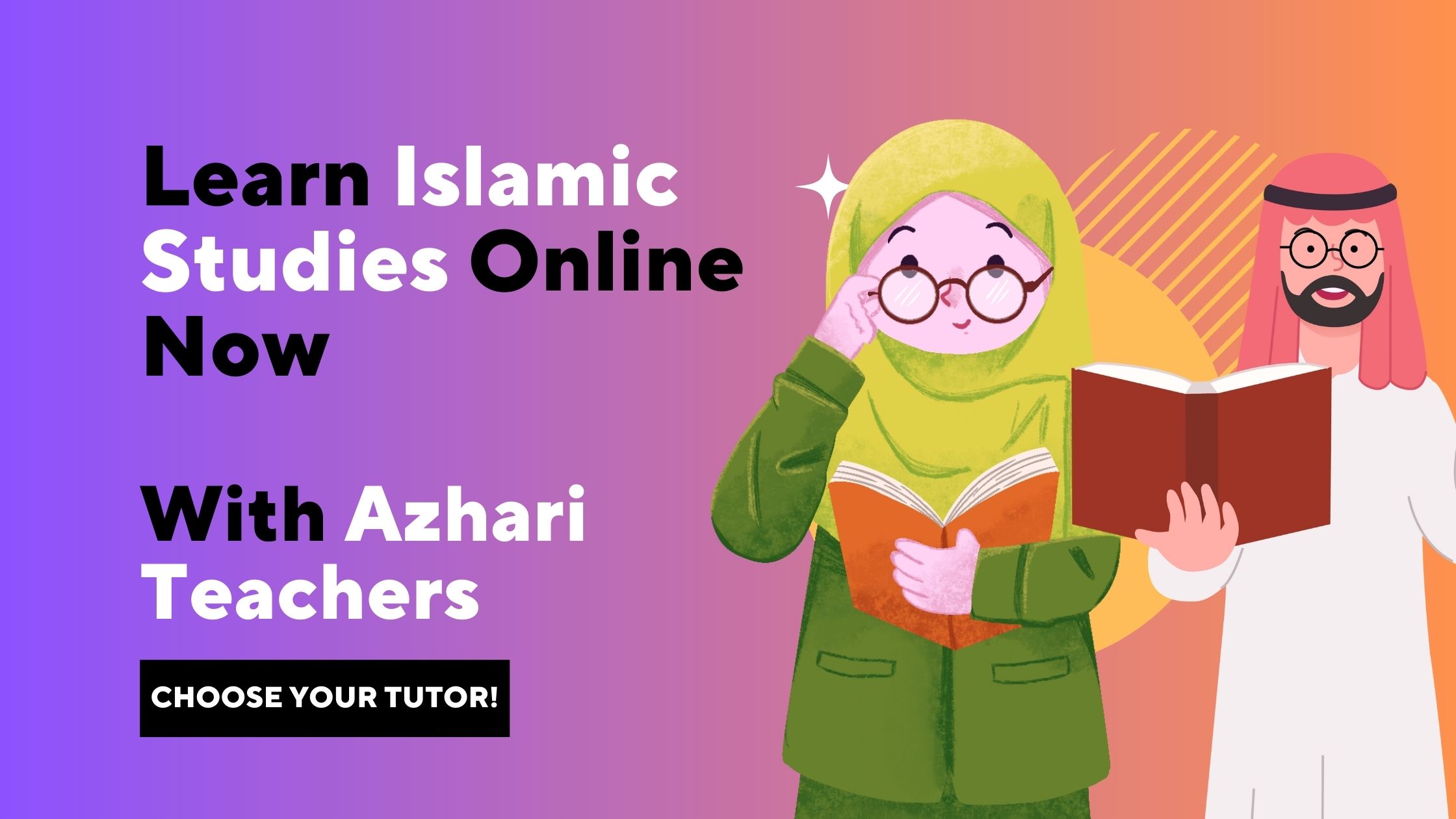Quran Verses about Learning: The Quran emphasizes the significance of seeking knowledge and understanding through various verses. Surah Al-Iqra (Surah Al-Alaq) emphasizes reading and learning, with the pen symbolizing knowledge (Surah Al-Iqra: 1-5). Surah Al-Zumar distinguishes between those with knowledge and those without, urging believers to become people of understanding (Surah Al-Zumar: 9). Surah Al-Baqarah highlights wisdom from Allah, reserved for those who truly understand the Quran (Surah Al-Baqarah: 269). Surah A-lNisa encourages faith in the Book and previous scriptures (Surah A-lNisa: 136).
Surah Al-Ankabut encourages anchoring to knowledge, with believers urged to engage with the Quran for divine mercy (Surah Al-Ankabut: 49; 204). Surah Al-Mujadila warns against concealing Quranic teachings and emphasizes living by its guidance (Surah Al-Mujadila: 11; 19; 159). Surah Al-Baqarah imparts wisdom through parables, stressing understanding, application, and seeking forgiveness (Surah Al-Baqarah: 121; 269; 282; 286). Lastly, Surah Al-A’raf guides believers to actively listen to the Quran for mercy and emphasizes conveying knowledge despite rejection (Surah Al-A’raf: 43; 169; 176; 204).
In the realm of Quran Verses talks about the Islamic teachings, the Quran stands as a timeless source of guidance and wisdom. Its verses illuminate various aspects of life, spirituality, and human conduct. Among its profound teachings, a recurrent theme resonates—the paramount importance of learning.
The Quran extols the virtue of seeking knowledge, understanding its revelations, and applying its insights to lead a purposeful and enlightened life. As we embark on this journey to explore the ayat (verses) about learning the Quran, we delve into the heart of Islam’s exhortation to acquire knowledge as a means of drawing closer to the Divine and enriching our existence.
Table of Contents
Unveiling the Quranic Emphasis on Knowledge
The Quran, revered by millions across the globe, is not merely a compilation of words but a comprehensive guide to righteous living. It beckons individuals to reflect, ponder, and delve into its verses to extract the profound meanings they hold. Central to this endeavor is the act of learning—the conscious engagement with the Quranic teachings.
The Quran, in its eloquent language, emphasizes that knowledge is a pathway to a deeper connection with Allah, an instrument to lead humanity toward a life imbued with wisdom, compassion, and purpose.
In this exploration of “Ayat about Learning the Quran,” we shall embark on an illuminating journey through select verses that underscore the significance of seeking knowledge and understanding the Quran.
We shall navigate through verses that celebrate the acquisition of wisdom, illuminate the role of those who impart knowledge, and elucidate the transformative power of comprehending and living by the Quran’s teachings.
Quran Verses that Illuminate the Path of Learning
As we navigate through these verses, we shall unravel the Quranic narrative that urges believers to rise above ignorance, embrace enlightenment, and become stewards of knowledge.
1- Surah Al-Iqra (Surah Al-Alaq), Verse 1-5:
“Read in the name of your Lord who created. Created man from a clinging substance. Read, and your Lord is the most Generous—Who taught by the pen—Taught man that which he knew not.”
Verse 1-5
These opening verses of Surah Al-Iqra emphasize the act of reading and learning through the command of Allah. The pen, representing knowledge and learning, is highlighted as a means through which human beings are taught what they did not know.
2- Surah Al-Zumar, Verse 9:
“Are those who know equal to those who do not know? Only they will remember [who are] people of understanding.”
Verse 9
This verse emphasizes the distinction between those who possess knowledge and those who do not. It encourages believers to become people of understanding and to recognize the elevated status of those who seek knowledge.
3- Surah Al-Baqarah, Verse 269:
“He grants wisdom to whom He pleases; and he to whom wisdom is granted indeed receives a benefit overflowing; but none will grasp the Message but people of understanding.”
Surah Al-Baqarah
This verse highlights that wisdom and understanding come from Allah, and those who receive it are recipients of a great benefit. It reinforces the idea that true understanding of the Quran comes to those who actively seek it.
4- Surah A-lNisa, Verse 136:
“O you who have believed, believe in Allah and His Messenger and the Book that He sent down upon His Messenger and the Scripture which He sent down before. And whoever disbelieves in Allah, His angels, His books, His messengers, and the Last Day has certainly gone far astray.”
Surah A-lNisa
This verse encourages believers to have faith in the Book sent down by Allah and His messengers. It underscores the importance of believing in and learning from the scriptures revealed before the Quran as well.
Seeking Guidance from the Informed: The Wisdom of Surah Al-Ankabut
Surah Al-Ankabut, also known as “The Spider,” is a chapter in the Quran that carries profound insights about faith, perseverance, and seeking guidance. Titled after the spider’s intricate web that can be fragile yet tenacious, this chapter weaves a narrative that encourages believers to anchor themselves to knowledge and understanding.
Within its verses lies a timeless lesson on the importance of learning from those who possess insight, and the role that knowledge plays in fortifying our spiritual journey. Let us unravel the wisdom embedded in Surah Al-Ankabut, as it illuminates the significance of seeking guidance from the informed.
Surah Al-Ankabut, Verse 49:
“But nay, this is a Glorious Quran, (Inscribed) in a Tablet Preserved!”
Verse 49
While this verse doesn’t explicitly mention learning, it highlights the sacred and preserved nature of the Quran. This emphasizes the importance of studying and understanding the Quran’s teachings.

Unveiling Profound Meanings: Decoding the Symbolism of Surah Al-Mujadila
Surah Al-Mujadila holds within its verses a tapestry of symbolism that enriches our understanding of faith and interpersonal dynamics. Like a hidden gem, this chapter of the Quran presents layers of meanings that invite contemplation and exploration.
Through its stories and metaphors, Surah Al-Mujadila imparts timeless wisdom, offering us a unique perspective on resolving disputes, nurturing relationships, and embracing the principles of justice. Join us as we delve into the symbolism of this chapter, uncovering the transformative insights it carries and the guidance it provides for our lives.
1- Surah Al-Mujadila, Verse 11:
“O you who have believed, when you are told, ‘Make space in assemblies,’ then make space; Allah will make space for you. And when you are told, ‘Arise,’ then arise; Allah will raise those who have believed among you and those who were given knowledge, by degrees. And Allah is Acquainted with what you do.”
Verse 11
This verse highlights the honor and elevation that comes with knowledge. Those who are given knowledge are raised in ranks by Allah, underscoring the significance of both knowledge and obedience.
2- Surah Al-Mujadila, Verse 19:
“The example of those who were entrusted with the Torah and then did not take it on is like that of a donkey who carries volumes [of books]. Wretched is the example of the people who deny the signs of Allah. And Allah does not guide the wrongdoing people.”
Verse 19
This verse illustrates the importance of not just possessing knowledge but also acting upon it. Those who were entrusted with knowledge but did not follow it are likened to a donkey carrying books, emphasizing the importance of living by the teachings of the Quran.
Delving Deeper: Interpreting the Quranic Parable in Surah Al-Baqarah
Within the verses of the Quran lies a wealth of wisdom conveyed through parables, inviting us to ponder their meanings and extract valuable life lessons. Among these parables, Surah Al-Baqarah presents a thought-provoking narrative that resonates with profound insights.
This chapter holds a mirror to human nature, guiding us to introspect and make choices that align with our spiritual journey. Join us as we embark on a journey of interpretation, peeling back the layers of this Quranic parable in Surah Al-Baqarah to reveal the timeless wisdom it imparts.
1- Surah Al-Baqarah, Verse 121:
“Those to whom We have given the Book recite it with its true recital. They [are the ones who] believe in it. And whoever disbelieves in it – it is they who are the losers.”
Verse 121
This verse underscores the significance of reciting the Quran with proper understanding and reflection. It praises those who recite the Book as it should be recited, with true comprehension, belief, and faith. It contrasts this with the consequences of disbelief or neglecting the Quran’s teachings.
2- Surah Al-Baqarah, Verse 269:
“He grants wisdom to whom He pleases; and he to whom wisdom is granted indeed receives a benefit overflowing; but none will grasp the Message but people of understanding.”
Verse 269
This verse speaks of the wisdom granted by Allah to those He chooses. It highlights the immense benefit of receiving wisdom and understanding, emphasizing that only those with insight and comprehension will truly grasp the message of the Quran.
3- Surah Al-Baqarah, Verse 285:
“The Messenger has believed in what was revealed to him from his Lord, and [so have] the believers. All of them have believed in Allah and His angels and His books and His messengers, [saying], ‘We make no distinction between any of His messengers.’ And they say, ‘We hear and we obey. [We seek] Your forgiveness, our Lord, and to You is the [final] destination.'”
Verse 285
While this verse encompasses a broader theme of belief, it emphasizes the faith of the believers in the revelations from Allah, including His books (which includes the Quran). The verse portrays a unified belief in all the messengers and their messages, highlighting the importance of acknowledging and learning from these divine sources.
4- Surah Al-Baqarah, Verse 282:
“O you who have believed, when you contract a debt for a specified term, write it down. And let a scribe write [it] between you in justice. Let no scribe refuse to write as Allah has taught him. So let him write and let the one who has the obligation dictate. And let him fear Allah, his Lord, and not leave anything out of it. But if the one who has the obligation is of limited understanding or weak or unable to dictate himself, then let his guardian dictate in justice. And bring to witness two witnesses from among your men. And if there are not two men [available], then a man and two women from those whom you accept as witnesses – so that if one of the women errs, then the other can remind her.”
Verse 282
This comprehensive verse emphasizes justice, honesty, and proper documentation, and although it covers financial transactions, it underscores the importance of meticulousness and clarity in communication. This principle of being careful and detailed in recording agreements can be extrapolated to the practice of learning and understanding the Quran as well.
5- Surah Al-Baqarah, Verse 44:
“Do you order righteousness of the people and forget yourselves while you recite the Scripture? Then will you not reason?”
Verse 44
This verse admonishes those who advocate for righteousness but fail to apply it in their own lives. It prompts self-reflection and encourages individuals to ponder their own actions while engaging with the Quranic teachings.
6- Surah Al-Baqarah, Verse 151:
“Just as We have sent among you a messenger from yourselves reciting to you Our verses and purifying you and teaching you the Book and wisdom and teaching you that which you did not know.”
Verse 151
In this verse, Allah highlights the multifaceted role of the Prophet Muhammad (peace be upon him) in conveying the Quranic message. It emphasizes the teaching of both the Book and wisdom, indicating the holistic nature of learning in Islam.
7- Surah Al-Baqarah, Verse 159:
“Indeed, those who conceal what We sent down of clear proofs and guidance after We made it clear for the people in the Scripture – those are cursed by Allah and cursed by those who curse.”
Verse 159
This verse warns against concealing or distorting the clear guidance revealed in the Quran. It emphasizes the importance of accurately conveying and understanding the teachings to avoid falling into misguidance.
8- Surah Al-Baqarah, Verse 197:
“Hajj is [during] well-known months, so whoever has made Hajj obligatory upon himself therein [by entering the state of ihram], there is [to be for him] no sexual relations and no disobedience and no disputing during Hajj. And whatever good you do – Allah knows it. And take provisions, but indeed, the best provision is fear of Allah. And fear Me, O you of understanding.”
Verse 197
This verse relates to the regulations of Hajj pilgrimage, but it also imparts the importance of understanding the rules and guidelines related to religious practices. It emphasizes that true understanding and fear of Allah are integral components of faith.
9- Surah Al-Baqarah, Verse 286:
“Allah does not burden a soul beyond that it can bear. It will have [the consequence of] what [good] it has gained, and it will bear [the consequence of] what [evil] it has earned. Our Lord, do not impose blame upon us if we forget or make a mistake. Our Lord, and lay not upon us a burden like that which You laid upon those before us. Our Lord, and burden us not with that which we have no ability to bear. And pardon us; and forgive us; and have mercy upon us. You are our protector, so give us victory over the disbelieving people.”
Verse 286
This concluding verse of Surah Al-Baqarah is a supplication that acknowledges human limitations and seeks Allah’s forgiveness for mistakes and forgetfulness. It underscores the need for understanding and reflects the humble disposition of believers towards their Creator.
How Surah Al-A’raf Guides Us to Apply Knowledge?
The Quran serves as a timeless source of guidance, illuminating every facet of human existence. Among its chapters, Surah Al-A’raf stands as a beacon, offering profound insights into the application of knowledge in our lives. Through narratives and reflections, this chapter speaks to the intricate relationship between learning and action.
As we explore the verses of Surah Al-A’raf, we unveil a roadmap that leads us beyond the acquisition of knowledge, guiding us towards its practical embodiment. Join us on a journey through this chapter’s verses, as we discover how it enlightens the path of utilizing knowledge to elevate our faith and navigate the complexities of the world.
1- Surah Al-A’raf, Verse 43:
“And We shall remove from their hearts any lurking sense of injury; beneath them will be rivers flowing; and they shall say: ‘Praise be to Allah, who hath guided us to this (felicity): never could we have found guidance, had it not been for the guidance of Allah: indeed it was the truth, that the messengers of our Lord brought unto us.’ And they shall hear the cry: ‘Behold! the garden before you! Ye have been made its inheritors, for your deeds (of righteousness).'”
verse 43
This verse illustrates the gratitude of those who are guided by Allah’s message. It emphasizes that the guidance brought by the messengers is the ultimate source of true enlightenment and understanding. It underscores that without divine guidance, true knowledge cannot be attained.
2- Surah Al-A’raf, Verse 169:
“And a company of them said: ‘Why preach ye to a people whom Allah will destroy or visit with a terrible punishment?’ Said the preachers: ‘To discharge our duty to your Lord, and perchance they may fear Him.'”
Verse 169
This verse highlights the duty of the messengers to convey the message of Allah regardless of the circumstances. It underscores the importance of teaching and spreading knowledge, even if some might reject it. The emphasis is on fulfilling one’s responsibility to impart knowledge.
3- Surah Al-A’raf, Verse 176:
“And had We willed, We could have elevated him thereby, but he adhered [instead] to the earth and followed his own desire. So his example is like that of the dog: if you chase him, he pants, or if you leave him, he [still] pants. That is the example of the people who denied Our signs. So relate the stories that perhaps they will give thought.”
Verse 176
This verse uses a metaphor to illustrate the behavior of those who ignore divine guidance and follow their desires. The analogy of a dog symbolizes heedlessness. The verse encourages the telling of stories (lessons) to prompt reflection and learning from the past.
4- Surah Al-A’raf, Verse 204:
“And when the Quran is recited, then listen to it and pay attention that you may receive mercy.”
Verse 204
This straightforward verse directs believers to actively listen and pay attention when the Quran is being recited. It emphasizes the importance of focused engagement with the Quran’s words to receive Allah’s mercy.
Learn the Quran Online With Bayan al-Quran Native Arab Tutors:
Embark on a transformative journey of Quranic learning with Bayan Al-Quran’s comprehensive online courses. Our platform offers an authentic and immersive experience tailored to learners worldwide. Whether you’re a beginner or seeking to enhance your skills, our Tajweed courses provide expert guidance and structured learning to master the art of Quranic recitation.
🎓 Expert Guidance:
Benefit from experienced instructors who specialize in Tajweed, breaking down complex rules into manageable segments for learners of all levels.
✨ Key Features:
- Structured, step-by-step learning approach.
- Access to high-quality instructional materials.
- Real-time feedback from qualified tutors to enhance your practice.
- Flexible learning schedules to accommodate your pace and convenience.
- Immerse yourself in the melodious tones of Quranic recitation, enriching your spiritual experience.
🌟 Why Choose Bayan Al-Quran?
Join our vibrant community dedicated to perfecting Quranic recitation. Build a profound connection with the divine words of the Quran and enrich your spiritual journey. Choose Bayan Al-Quran for a transformative learning experience and embark on a path to mastering Tajweed with confidence.
You can also attend online Quran Classes with Bayan al-Quran with Native Arab tutors. There are also several courses that can help you in this regard:
- Online Quran Classes For Kids
- Learn Arabic Online For Kids
- Islamic Studies Online Course
- Noorani Qaida Online Course For Kids And Adults
- Arabic Tutors Online
Conclusion
In conclusion, the article “Ayat about Learning the Quran” sheds light on the profound significance of Quranic verses that emphasize the importance of acquiring knowledge and understanding from the Holy Quran.
The verses highlighted in the article underline the Quran’s role not only as a spiritual guide but also as a source of wisdom and enlightenment for all aspects of life. Through these ayat, a clear message emerges: the pursuit of knowledge is a fundamental obligation for all believers, regardless of age or background.
The article underscores the Quran’s emphasis on critical thinking and reflection, urging readers to delve deeper into the meanings of the verses and seek the underlying truths they hold. It underscores that learning the Quran is not just about rote memorization, but about comprehending the divine messages and integrating them into one’s life.

















